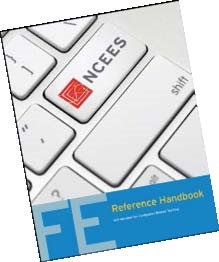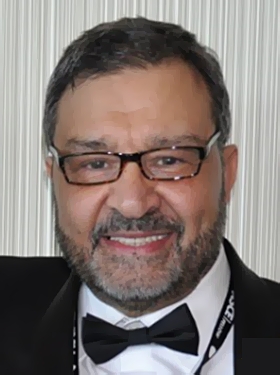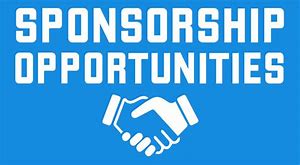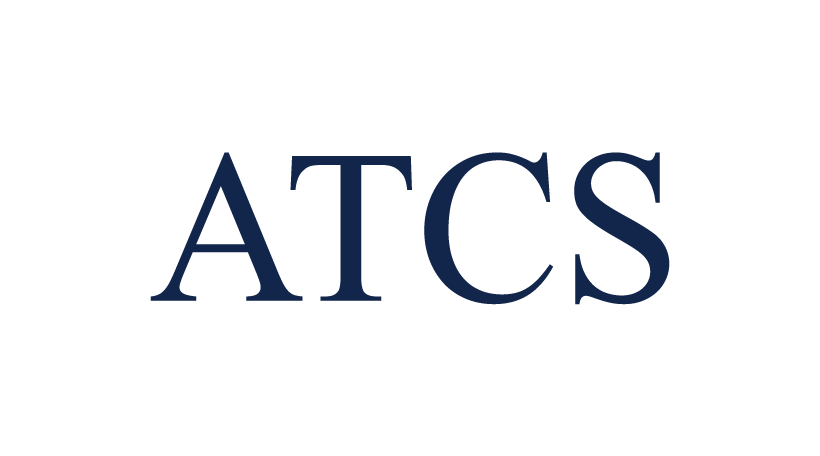What Engineers Do? Ten Reasons to Love Engineering

What do engineers really do? How do they spend their days? If you think they mostly sit at a desk doing math, you are wrong. According to DiscoverE (E-in STEM), engineers not only design, invent, fix, improve, research, travel, present, inspect, draw, write, calculate, but also they work with really interesting people on great projects. Engineers are changing the world for the better all the time. They dream up creative, practical solutions and work with other smart, inspiring people to invent, design, and create things that change our planet. As promised, in this issue of Dr. Z’s Corner we will talk about “Ten Reasons to Love Engineering.”
1: Love your work, and love your life
Engineering is an exciting profession, but one of its greatest advantages is that it will leave you time for all the other things in your life that you love. According to author and creativity guru, Chris Barez-Brown, life and work are intrinsically linked. They are not separate, they are one. If we want to live an extraordinary life, we have to make our work equally extraordinary. It is possible to help you make your work, work for you. Apparently Brown’s approach has produced some tangible returns on investment for many Fortune 500 companies such as Nike, Coca Cola, Diageo, The Gates Foundation, Sony and WPP Unilever, and ITV, for his unique and energetic approach to transforming their people and their work.
2: Be creative
Engineering is a great outlet for the imagination – the perfect field for independent thinkers. Can Creativity Be Taught? What about the creative process? Certainly an understanding of the basic rules of thumb can be taught. Everyone can learn to some degree how to construct ideas and things that work by imitating, emulating and modeling the behaviors of effective teachers. A word of caution: According to experts on creativity, extensive technical thinking diminishes creativity. Most engineers would need to be a practitioner to understand the creativity process.
3: Work with great people
Engineering takes teamwork, and you’ll collaborate with all kinds of people inside and outside the field. Whether they’re designers or architects, doctors or entrepreneurs, you’ll be surrounded by smart, inspiring people.
4: Solve problems, design things that matter
Come up with solutions no one else has thought of. Make your mark on the world. A lot of people end up being successful, and some of those successful people end up being rich. But very few people actually make their mark on the world and leave us all better off for having known them.
5: Never be bored
Creative problem solving will take you into uncharted territory, and the ideas of your colleagues will expose you to different ways of thinking. Be prepared to be fascinated and to have your talents stretched in ways you never expected.
6: Earn a big salary
Engineers not only earn lots of respect, but they’re highly paid as well. Even the starting salary for an entry-level job is impressive comparing to other professions. According to a recent survey, entry-level civil engineers can expect to earn an average of $58K per year. Of course, the residence (location of the work) and the name of the company will impact the annual salary, with the former having the largest influence.
7: Enjoy job flexibility
An engineering degree offers you lots of freedom in finding your dream job. It can be a launching pad for jobs in business, design, medicine, law, and government. To employers or graduate schools, an engineering degree reflects a well-educated individual who has been taught ways of analyzing and solving problems that can lead to success in all kinds of fields.
8: Travel
Field work is a big part of engineering. You may end up designing a skyscraper in Europe or developing safe drinking-water systems in Asia. Or you may stay closer to home, working with a nearby high-tech company or a hospital.
9: Make a difference
Everywhere you look you’ll see examples of engineering having a positive effect on everyday life. Cars are safer, sound systems deliver better acoustics, medical tests are more accurate, and computers and cell phones are a lot more fun! You’ll be giving back to your community.
10: Change the world
Imagine what life would be like without pollution controls to preserve the environment, lifesaving medical equipment, or low-cost building materials for fighting global poverty. All this takes engineering. In very real and concrete ways, engineers save lives, prevent disease, reduce poverty, and protect our planet.
And finally, did you know that starting July 1, 2017, NCEES will introduce a new testing component called Alternative Item Types (AITs) in its computer-based FE and FS exams? As you may have guessed, AITs are questions other than traditional multiple-choice questions and next month we’ll talk about them.
Until next time,
Ahmet Zeytinci (Dr.Z.)
This email address is being protected from spambots. You need JavaScript enabled to view it.
Engineers Week 2017: The Good News is Female Engineers are in Charge!

I am pleased to tell my readers that we’ve just celebrated one of the most memorable Engineers Weeks in recent memory. We’ve been invited to several award banquets and proclamation lunches with colleagues from ASCENCS, including the president and my good friend Jordan Pitt. We were delighted to see that all keynote speakers and many awardees were women engineers. That is why this month, I’ve decided to write about women engineers. Especially two extraordinary women engineers, Dr. Ericsson and Dr. Pehlivan. You may already know them since they are celebrities. But first, a brief background and some statistics:
Who was the first woman to receive a degree in engineering? Elizabeth Cady Stanton received her civil engineering degree from Cornell University in 1905. Over the past few decades a growing number of women have been entering the field of engineering, but many believe this good news doesn’t have a rosy ending. As recent coverage in the media, including National Public Radio, details, many female engineers are leaving their positions and some are hesitant to enter the profession at all. For the civil engineering community, the statistics demonstrate that we are doing better than most, yet we have much more work to do.
Statistics show that women represent 12.1% of the civil engineering workforce and 14% of the total workforce. And according to the Engineering Workforce Commission (EWC), over the past five years, civil engineering has consistently outpaced all other engineering disciplines in the awarding of Master’s and Doctoral degrees to women.
Aprille Joy Ericsson, PhD:
Dr. Aprille Joy Ericsson is the New Business Lead for the NASA GSFC Instrument Systems and Technology Division at NASA Goddard Space Flight Center.
Most recently, she served as the Capture (Mission) Manager for a proposed Astrophysics Mid-sized Class Explorer of $250M, called STAR-X. Prior to that proposal development, she served as the NASA GSFC Program Manager for Small Business Innovative Research/ Small Business Technology Transfer Research. Formerly, she has served as the Deputy to the Chief Technologist for the Applied Engineering and Technology Directorate at the NASA Goddard Space Flight Center (GSFC) with a primary focus as a Technologist for Advanced Manufacturing, Applied Nanotechnology, miniaturization of Technology for CubeSat and SmaliSat space platforms.
During her 25+ year tenure with NASA, she has held numerous positions. She was an Attitude Control Systems analyst developing practical control methods and analyzing structural dynamics for X-Ray Timing Explorer, Tropical Rain Forest Measurement Mission, Transition Region & Coronal Explorer, and Wilkerson Microwave Anisotropy Probe. As a NASA HQs Program Executive for Earth Science, and a Business Executive for Space Science, she supported the SORCE and ICESat missions. She was an Instrument Project Manager leading spaceflight instrument teams and proposal development. Also, her aerospace research at Howard University was developing control methods for orbiting large space platforms like ISS.
Dr. Ericsson has also served as an Adjunct Faculty member at several Washington DC Area Universities. She sits on several Technical Academic boards at the National Academies, MIT and previously Howard University where she also served as a member of the Board of Trustees.
Of her numerous awards and recognitions received over the years, the most prestigious was “The 2016 Washington Award” from the Western Society of Engineers. She is the first female (and the first African-American female) to receive a PhD in Mechanical Engineering from Howard University, and the first African – American female to receive a PhD in Engineering at NASA GSFC. She received her BS in Aeronautical/Astronautical Engineering from MIT. She grew up in Brooklyn, NY and has one daughter, Arielle Ericsson-White.
Menzer Pehlivan, PhD, PE:
Dr. Menzer Pehlivan is a well-known PE, featured in ASCE’s “Dream Big” IMAX movie. Dream Big: Engineering Our World debuts in museums and theaters around North America during the Engineers Week.
Dr. Menzer Pehlivan is a geotechnical engineer specializing in earthquake engineering. She is currently working at CH2M in Seattle, WA. She is an expert in the analysis of seismic site response, liquefaction and other natural hazards, soil-foundation-structure interaction, probabilistic seismic hazard analysis (PSHA), and the seismic design of foundation of structures. She was inspired to build more resilient communities and reduce the risk associated with the earthquakes following the 1999 Kocaeli Earthquake that hit Turkey.
Upon completing her undergraduate degree in Civil Engineering, she pursued graduate studies specializing in geotechnical earthquake engineering. She obtained her doctorate from The University of Texas at Austin in 2013 and started working as a consulting engineer in New York City, where she had opportunity to work on seismic design of projects in the US, Mexico, and Canada. During this time she also served as an Adjunct Professor at Manhattan College where she developed and taught the seismic portion of a graduate course for practicing engineers on fundamentals of foundation design.
She has been actively involved with pioneering research projects advancing the state-of-art and state-of-practice of geotechnical earthquake engineering. She led a part of NGA-EAST research effort regarding the modelling of the uncertainty in regional soil effects of Eastern-North America. Following the 2015 Nepal Earthquake, she was one of the appointed members of the Geotechnical Extreme Events Reconnaissance (GEER) team to travel to Nepal and perform post-earthquake reconnaissance. Dr. Pehlivan published several journal and conference papers and serves as reviewer for Earthquake Spectra.
Next month we will talk about “Ten Reasons to Love Engineering.”
Until next time,
Ahmet Zeytinci, P.E.
Dr. Z. (This email address is being protected from spambots. You need JavaScript enabled to view it.)









